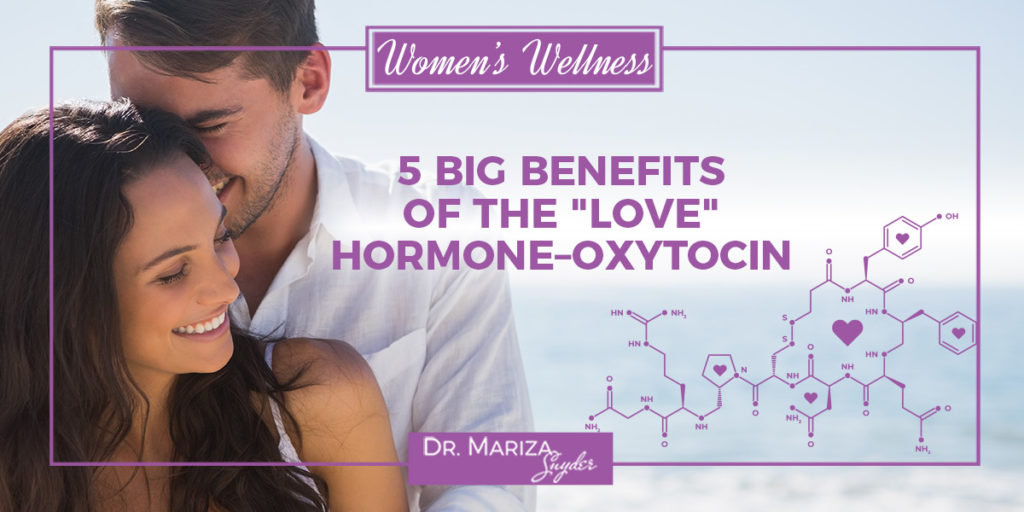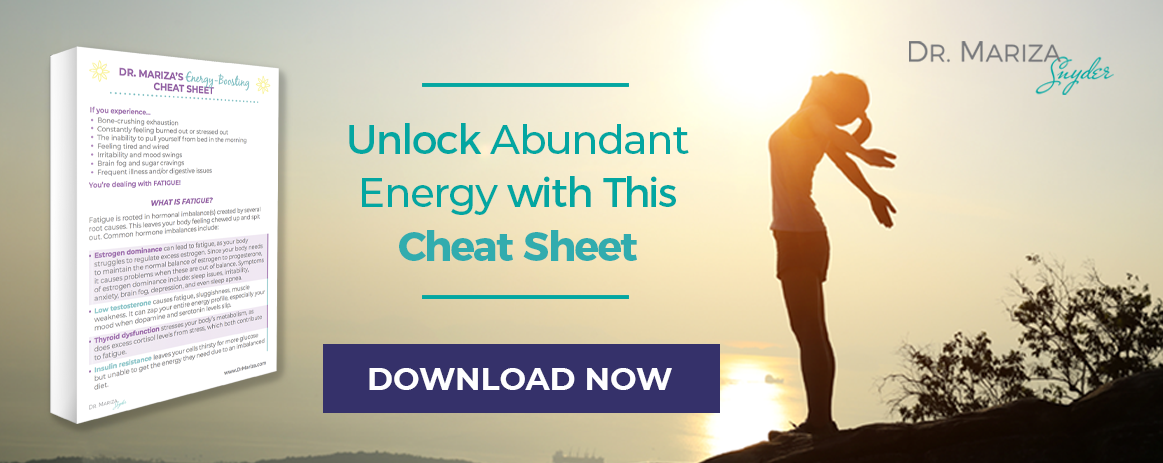
When was the last time you felt the warm and fuzzies? You KNOW the feeling I’m talking about! The one you get when you give someone a great big bear hug or cuddle with your favorite person or pet. And with Valentine’s Day right around the corner, I would like to celebrate the hormone that makes that feeling possible: Oxytocin.
This magnificent, lesser-known hormone is commonly called the “love” hormone–because it has such an impeccable knack for showing up to the party at the exact moment we feel love, empathy, or connection.
Fun fact: Experts used to believe only women had oxytocin. But that’s actually a myth. We ALL have oxytocin (yes, that includes men… and even our pets!). In fact, all mammals have it.
Bring on the cuddles!
BUT what’s even more surprising about oxytocin is that it also shows up when we’re stressed out and need a buffer.
It’s like an automatic emergency brake that pumps for us during super intense moments to help keep us calm, cool, and collected (even if it doesn’t always work perfectly).
Oxytocin can even help reduce pain, slow down the aging process, and more.
Can you use a bit more of that in your life? I know I CAN!
So, this Valentine’s Day, I want to show you how to activate your “love” hormone and bring even more love and joy into your life, into your relationships with others, and especially, into your relationship with yourself…
…because at the end of the day, YOU are the building block of all your relationships!
If you need a little reminder on why self-care is so essential to your well-being, check out my conversation with Dr. Elena Brower in Podcast #117: What it means to Practice Your Own Self-Care and Authenticity.
But first, what IS oxytocin exactly?
To put it plainly, oxytocin is two things:
- the motherboard of our emotions
- an INFLUENCER… for other hormones, general health, including facilitating adaptation to stressors, development, growth, healing, reproduction and social behavior
Here’s a quick look at the emotional effects of oxytocin
- It’s basically the opposite of our “fight or flight” response
- Higher levels are linked to feeling calmer and having a better capacity to deal with stressIt can help increase fidelity and monogamy in relationships by keeping us honest and facilitating compassion/empathy toward others — plus it increases feelings of protectiveness
- It helps you to feel connected to others, more open and trusting, socially adept and in tune with the vibe around you
- Best of all, oxytocin can amplify sex, intimacy, and partnership
BUT. It’s not just a LOVE hormone. Oxytocin has other jobs, too!
In the PubMed article entitled, Oxytocin and Interpersonal Relationships, oxytocin was attributed to the body’s ability to better handle stress, produce higher levels of emotional recognition and empathy, and experience enhanced social development and cooperation among individuals.
How is oxytocin a major INFLUENCER on the physical processes in our body?
- When given the signal from the brain, it binds to oxytocin receptors in the body, influencing how we feel and behave toward others. It is responsible for many aspects of social bonding and sexual pleasure.
- It influences the autonomic nervous system and the immune system. Oxytocin also has similarities to endorphins (opiate chemicals) because we produce more in order to soothe ourselves in response to sources of pain and stress
- It has an effect on the “hypothalamic-pituitary-adrenal axis” (also called the HPA axis), which dictates release of many hormones
- It has anti-inflammatory and even antioxidant effects, since it defends the body against trauma, illness and stress-induced damage
- It helps keep blood pressure levels in the normal range and balances cortisol levels, a primary “stress hormone”
Now that we’ve got the science part down, let’s take a look at what makes oxytocin so freakin’ awesome.
Here are the 5 BIG benefits of the “love” hormone–oxytocin:
#1: Helps with social connectedness + building intimate relationships
Studies show that oxytocin enforces pro-social behaviors, attachment, bonding and even fidelity by rewarding those who maintain good relationships with positive, calm feelings of well-being.
Many forms of social contact seem to result in bursts of oxytocin, even if it’s anticipated social contact, such as planning for a date, party or get-together.
The hormone also works on a “positive feedback loop.” It makes us want to socialize!
For a deeper dive into how hormones affect us socially, check out my conversation with Dr. John Gray in Podcast 94: The Connection Between Our Relationships and Our Hormonal Health
#2) May have anti-aging and anti-obesity effects on the body
In one study, it was shown that higher oxytocin release is linked with protection against accelerated signs of aging and better regeneration of aged tissue stem cells, including muscle cells.
Additionally, it seems to reduce muscle and joint pain due to pain-dulling and anti-inflammatory effects.
Higher circulating levels are also thought to be positively associated with lean mass and bone mineral density.
#3) Boosts our ability to deal with stress
While it also works under times of low stress, oxytocin has been shown to be elevated under times of high stress, too.
It can make people who are stressed out seek out support through better social connections.
It may also help protect the nervous system from shutting down in the face of stressful circumstances, including childbirth.
#4) Supports breastfeeding and raising children
Research links the hormone to a mothers’ ability to care for her infant in multiple ways, one of which is through breastfeeding.
When a baby nurses from his/her mother’s breast, nerves in the nipple send a signal to the pituitary gland to produce oxytocin, which then causes tiny muscles around the nipple to squeeze and release milk.
Experts also believe that oxytocin helps new mothers and fathers feel calm even during difficult life transitions, one of which is having and caring for a new baby.
#5) Instrumental to inducing labor in pregnant women
Oxytocin is also VITAL to strengthening labor contractions during childbirth, along with helping control bleeding after childbirth.
It facilitates production of prostaglandins, which are chemicals that move labor along by increasing contractions.
Ok, so how do you BOOST your oxytocin and start experiencing these big benefits?
Stephanie Watson, Executive Editor of Harvard Women’s Health Watch says in her article, “Oxytocin, the Love Hormone”, some of the most promising ways to boost your levels are:
- Exercise (like walking, running, swimming, weightlifting, etc.)
- Music (sing, dance, enjoy, repeat)
- Touch (hugging, cuddling, making love, you know what I mean!)
10 of my favorite ways to up my oxytocin naturally include:
- Physical contact — aka my love language — aka hugs, massages, being intimate, etc.!
- Practicing self-love (you know, journaling, gratitude, taking my supplements, etc.)
- Making eye contact
- Laughing and joking around
- Telling my son and husband how much I love them
- Cooking for others and sharing meals together
- Petting a dog, cat, or other furry friend
- Listening to my favorite jams (on repeat!)
- Walking or exercising with the sunrise
- Giving and receiving gifts
Incorporate these simple strategies into your life and you will become a love magnet filled with joy, happiness, partnership, and success.
XO

Free Download: Easy, Practical Tips to Get More Energy!
Download the free Energy-Boosting Cheat Sheet now to learn how to unlock abundant health and energy that lasts—in only seconds every day!



No comments yet.